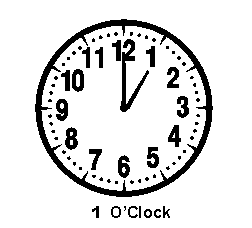Even eternal time cannot control the activities of the Lord. Eternal time is created by the Lord, and it acts under His control. The Supreme Personality of Godhead, therefore, is always transcendental to the influence of the modes of nature, maya, the Lord’s external energy, which acts in creation and annihilation.
Srimad-Bhagavatam, Canto 7: “The Science of God”
by His Divine Grace A. C. Bhaktivedanta Swami Prabhupada
______________________________________________
It’s up to your brain how long a moment lasts
Why Does Time Fly?
 By Martin P. Paulus | July 19, 2011 | Everybody knows that the passage of time is not constant. Moments of terror or elation can stretch a clock tick to what seems like a life time. Yet, we do not know how the brain “constructs” the experience of subjective time. Would it not be important to know so we can find ways to make moments last, or pass by, more quickly?
By Martin P. Paulus | July 19, 2011 | Everybody knows that the passage of time is not constant. Moments of terror or elation can stretch a clock tick to what seems like a life time. Yet, we do not know how the brain “constructs” the experience of subjective time. Would it not be important to know so we can find ways to make moments last, or pass by, more quickly?
A recent study by van Wassenhove and colleagues is beginning to shed some light on this problem. This group used a simple experimental set up to measure the “subjective” experience of time. They found that people accurately judge whether a dot appears on the screen for shorter, longer or the same amount of time as another dot.
However, when the dot increases in size so as to appear to be moving toward the individual — i.e. the dot is “looming” — something strange happens. People overestimate the time that the dot lasted on the screen. This overestimation does not happen when the dot seems to move away.
Thus, the overestimation is not simply a function of motion. Van Wassenhove and colleagues conducted this experiment during functional magnetic resonance imaging, which enabled them to examine how the brain reacted differently to looming and receding.
The brain imaging data revealed two main findings. First, structures in the middle of the brain were more active during the looming condition. These brain areas are also known to activate in experiments that involve the comparison of self-judgments to the judgments of others, or when an experimenter does not tell the subject what to do. In both cases, the prevailing idea is that the brain is busy wondering about itself, its ongoing plans and activities, and relating oneself to the rest of the world.
Second, brain areas including the left anterior insula were more active during the receding condition relative to the looming condition. The insula as a whole has been the focus of many recent studies and is thought to be involved in complex emotional processing. In particular, Craig has suggested that there is an emotional asymmetry, in which the left forebrain is associated with approach, safety, positive affect and the right forebrain is associated with arousal, danger, and negative affect. An object moving away might be seen as non-threatening, signaling the self to relax.
In fact, some investigators have suggested that the amount of energy spent during thinking and experiencing defines the subjective experience of duration. In other words, the more energy it takes to process a stimulus the longer it appears as a subjective experience of time. Something moving toward you has more relevance than the same stimulus moving away from you: You may need to prepare somehow; time seems to move more slowly.
The experience of time is not linear. Fear and joy stretches time as do stimuli that move towards us. What can we learn from these studies for our day-to-day experiences? When we experience something as “taking a long time” it is really the result of three inter-twined processes: the actual duration of the event, how we feel about the event, and whether we think the event is approaching us.
There is little we can do about the first factor but there are obvious ways of modulating how we feel about an event and how we think about an event approaching us. Future studies will need to address the question of whether modifying these factors can alter our subjective time experience so that that we can shorten life’s painfully extended moments of boredom and extend those wonderful moments of bliss.
Are you a scientist who specializes in neuroscience, cognitive science, or psychology? And have you read a recent peer-reviewed paper that you would like to write about? Please send suggestions to Mind Matters editor Gareth Cook , a Pulitzer prize-winning journalist at the Boston Globe. He can be reached at garethideas AT gmail.com or Twitter @garethideas.
source: http://www.scientificamerican.com/article.cfm?id=why-does-time-fly
ABOUT THE AUTHOR(S)
Dr. Martin P. Paulus is a psychiatrist at the University of California San Diego and the Veterans Affairs Health Care System San Diego. He is studying how we can use neuroscience tools to better understand psychiatric diseases.







Speak Your Mind